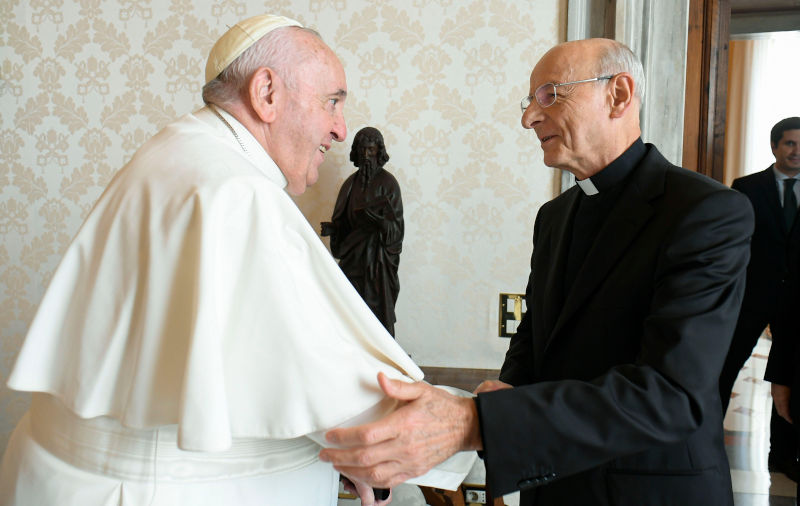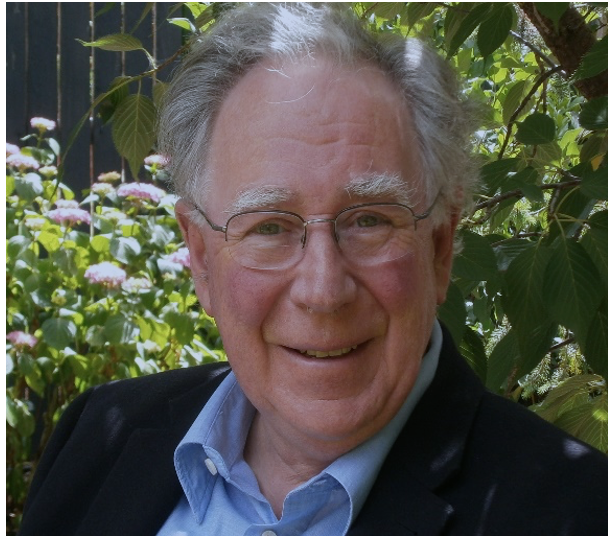Opus Dei: A Catholic sect
February 2, 2023
Opus Dei is a sect. Its spirituality doesnt free the spirit, but enslaves it.
Last Mondays Four Corners expos on Sydneys Opus Dei (OD) schools was disappointing. The programme lacked a broader context.
Sure, we learned that according to some ex-students and parents the schools werent woke, and that some teachers touted particularly silly assertions about pornography and holes in the brain, virginity and sticky tape, and masturbation as a mental disorder.
There were more serious allegations, such as opposition to the cancer-preventing HPV vaccine, widespread homophobia and targeting students to join OD. But we learned next-to-nothing about the organisation behind the schools, except for a reference to that particularly silly novel and movie, The Da Vinci Code.
While Opus Dei (meaning work of God) is obsessively secretive, theres a lot of information available. Ive written detailed accounts of OD in three books, including one published by the ABC in 2004, Between the Rock and a Hard Place (pp 192-202).
OD statistics are publicly available: in 2021 the reliable website catholic-hierarchy.org reported that worldwide membership comprised 2115 priests and 93,510 laypeople. In Australia there are 20 priests (including Sydney Auxiliary-Bishop Richard Umbers) and 600-700 laypeople. Most priests are in Sydney, including Warrane College at UNSW; OD also staffs West Melbourne parish.
Founded in October 1928 in Madrid, Spain, by the priest, Josemara Escriv de Balaguer, the formative years of OD were during the lead-up to and during the Spanish Civil War (1936-1939). This was a terrible period for Spain and the church and OD reflects something of the violence of that time.
Numerically small, OD has become a sect within Catholicism whose influence has lessened since the death of John Paul II in 2005. It certainly has clout within the NSW Liberal party, but otherwise its power-base in Australia is more imagined than real.
It was very powerful during the Franco regime in Spain. Nowadays, it still has some influence in Spanish, Italian, Peruvian and El Salvadorian politics and during the Pinochet regime in Chile. OD is also influential through the universities they have established in Spain and Latin America. In the US, Supreme Court Justices Clarence Thomas, John Roberts, Samuel Alito, Brett Kavanaugh and Neil Gorsuchare said to have OD connections; they are certainly very conservative Catholics.
Here Im purposely vague because of OD secrecy. No one is ever sure who is an actual vowed member and who is only a co-operator, or just a supporter. Its secrecy makes it alien in the Anglo-American world.
Escriv, who was declared a saint in 2002, claimed that OD was unique in Catholicism saying that it was not a religious order, but a true lay movement. In 1982 OD persuaded John Paul II to make it a Personal Prelature, that is an extra-territorial diocese, which meant that OD members, both priests and laity, werent subject to local bishops, but to the OD Prelate in Rome, a unique structure within Catholicism. Thats why the OD Sydney schools are completely independent of the local Catholic Educational authorities.
Full members of OD are either priests, numeraries, or supernumeraries. Numeraries are lay men and women who take vows (OD calls them promises) of celibacy and obedience making them the equivalent of committed members of religious orders. They live together in Opus houses, or privately. The men are usually professionals of some sort contributing their salaries to OD. The women do domestic work, although some have outside jobs and professions.
Supernumeraries are married laypeople whose spirituality and lives are immersed in OD and who contribute financially. Others associated with OD are oblates, laypeople living a celibate life outside an OD house and co-operators, some of whom are quite wealthy who support and foster ODs activities.
A notorious OD supernumerary was FBI Special Agent Robert Hanssen, probably the most damaging spy and traitor in US history. Ironically, his arrest was supervised by then-FBI Director, Louis J. Freeh, himself an OD co-operator.
Despite ODs claims to being a lay movement, its the priests whore in control and OD clergy exercise enormous influence over the lay members who are expected to reveal and confess the most intimate aspects of their lives to OD priests.
The spirituality of OD centres on Escrivs book El Camino, The Way, a collection of 999 aphorisms. By any objective reading the book is pedestrian and unoriginal, even though OD claims it provides a revolutionary new spirituality by emphasising that everyone, including laity, are called to holiness. But that is precisely what Thomas Kempis (1380-1471) Imitation of Christ and Saint Francis de Sales (1567-1622) Introduction to the Devout Life developed centuries before Escriva. And Saint Ignatius Loyola always said the Spiritual Exercises were as much for laypeople as for Jesuits.
There is nothing revolutionary in Escrivs spirituality. What he is really trying to do is set up a semi-monastic cordon sanitaire to protect OD members from so-called worldliness and unorthodoxy. There is no doubt about the sincerity of members, but OD exudes elitest superiority, compartmentalised faith and humourlessness.
My fundamental disagreement with OD is that it is a sect, that its approach to life and ministry is profoundly uncatholic and that its spirituality doesnt free the spirit, but enslaves it. A truly Catholic attitude is open, generous, ecumenical, humble enough to laugh at itself and universalist. That doesnt mean it doesnt have parameters like scripture, tradition and church teaching, but genuine Catholicism embraces rather than excludes.
OD is the opposite. Its closed and sectarian, living within a narrow orthodoxy. It sees itself as the measure of all things Catholic. Unless youre a part of OD, youre considered an outsider.
It is precisely this kind of context that Four Corners lacked. Its a pity it didnt look a bit deeper.

